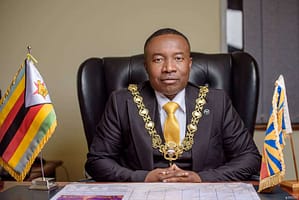ED using both guns and law to suppress citizens

The late Alex Magaisa
By Alex T. Magaisa
Combatants rely on guns and ammunition. They trade fire. The ones with supreme technology and organisational skills usually win.
There is a different kind of war that takes place without guns and ammunition. In this war, the law is the primary weapon. This kind of war has been referred to as lawfare.
Dictatorships rely on a combination of guns and the law. They engage in warfare against citizens and bludgeon dissenters into submission. But this kind of war is too visible and too gory. It produces blood on the streets. It creates evidence of tortured bodies.
The sight of thousands of gun-wielding soldiers and riot police on these streets gives away evidence of a severe crackdown and heavy-handedness. So, alternatively, though often, besides, they engage in lawfare against dissenting voices. Dictatorships arrest and detain dissenters based on spurious charges.
They include attempting to overthrow a constitutional government, inciting public violence, even insulting the President. Dissenters are kept in jail for a few days, sometimes weeks before they are released on bail. The accused persons then spend weeks, often months coming to court for routine remand hearings.
There is usually no trial in sight. Their lawyers will apply for the removal of the accused from remand. Over time, the prosecution starts to lose interest. But they dutifully appear before the court and allow the matters to drag on for a while.
Finally, when everyone has nearly forgotten about the case, a magistrate orders their removal from remand. The state media pretends that this isn’t happening. It no longer has the same excitement of old. If the story makes the paper, it will be tucked somewhere in the inside pages.
Maldives 7 This is what happened to “the Maldives 7”. The Maldives 7 is a group of mostly young Zimbabwean civil society activists who went for a workshop in the Maldives some 15 months ago. When they returned to Zimbabwe, they were arrested and accused of having gone for training to remove the government.
There was a lot of noise and excitement in state media upon their arrest and detention. But last week, they were removed from remand. They celebrated their freedom, but most of their fellow citizens might not have heard of this news. The regime never had a case against these young Zimbabweans.
There was nothing to prosecute. The regime simply wanted to assert its raw power. It also wanted to harass the activists and silence them and others. Indeed, for the 15 months that they were on remand, they could not travel outside the country – their bail conditions included surrendering their passports.
They were walking on eggshells. One of the Maldives 7 wanted to participate in a demonstration against Constitutional Amendment No. 2. They refused her organisation permission to demonstrate, citing that she was facing a severe offence.
The regime had successfully used the law as a weapon to restrict the political rights and freedoms of the activists. MDC Trio In another case involving the MDC Trio – Joana Mamombe, Cecilia Chimbiri and Netsai Marova, one of their bail conditions are that they cannot use social media. The regime justifies this severe restriction of their freedom of expression on the basis that it is a court order.
Here again, is law being weaponized to gag dissenting voices. It has the veil of law, and therefore a veneer of lawfulness, but in reality, it is a potent weapon designed to silence critics. For as long as they are on bail, awaiting trial, the three political activists are essentially silenced. They cannot tell their story on social media.
The removal of Beatrice Mtetwa It is in this context that today’s decision by Magistrate Nduna in the case of the State v Hopewell Chin’ono must be seen. It is part of the complex lawfare taking place between an increasingly authoritarian regime and citizens.
It is lawfare in which law is a weapon used by the Mnangagwa regime to suppress citizens. The brief facts are that the prosecution applied for the disqualification of Chin’ono’s lead lawyer Beatrice Mtetwa, arguing that, to use the magistrate’s words, “she has become personally involved so as to diminish her objectivity as an officer of the court”.
How did she do that? The prosecution’s argument revolved around comments posted on a Facebook page. Factual weaknesses The case should have collapsed on the facts alone. The prosecution was attributing to Mtetwa something that could not reasonably be attributed to her. The alleged post was on a Facebook page of a film which was made a decade ago. It was a firlm about Mtetwa’s career as a human rights lawyer. It’s called Beatrice Mtetwa and the Rule of Law. It is not her Facebook page. She does not contribute to it. The co-producer of the film who owns and runs the page is Lorie Conway, based in the US. Mtetwa did not even know about the alleged comments until they were raised in court. Mtetwa has no presence on social media. Nevertheless, the prosecution attributed responsibility for the posts to Mtetwa. Incredibly, against this background, magistrate Nduna agreed with the prosecution. The magistrate dared to state in absolute terms and without any evidence to back up the declaration that Mtetwa had authorised and approved the Facebook page. “Obviously the lead counsel authorised and approved its coming into existence,” writes magistrate Nduna referring to the relationship between Mtetwa and the Facebook page. From this, according to the magistrate, “she acceded to posts being made on it which posts are relevant to herself … She cannot wash her hands like Pontias Pilate of the Bible”.
The magistrate does not state the factual basis upon which he arrives at the absolute statement that she “obviously” gave “authority and approval” for the Facebook page. It’s just a bald and embarrassing declaration. The prosecution provided no evidence and the magistrate makes no reference to evidence of this authorization or even the alleged “accession” to posts made on the Facebook page.
It’s unreasonable for a judicial officer to arrive at a conclusion on the facts without the evidence to back it up. There is no indication of an attempt to evaluate the factual evidence presented by the parties concerning these specific issues. He just accepted without showing how and why tha Mtetwa had “acceded to posts being made” on the page. There is nothing in the judgment to show that Mtetwa made the comments that the court found offensive. Yet, the whole case against her rested on the allegation that she had “scandalised the court” due to those comments. One cannot be guilty of scandalising the court by implication. There has to be direct and clear evidence for it.
Removing the lead lawyer from a case in which she is representing an accused is a serious matter which should not be taken lightly. In this case, magistrate Nduna removes Chin’ono’s lead lawyer on spurious grounds of a Facebook post on a page that is not hers; which she does not control and in respect of comments that she did not post. It’s so unreasonable it induces a sense of shock that a judicial officer could arrive at this decision which deprives an accused in a criminal case of the lawyer of his choice. Strategy of small fires I do not think it is a decision that could survive a review or appeal in the higher courts, assuming, of course, the matter comes before reasonable judges. But what will happen on review or appeal is not especially important at the current stage of this lawfare.
When the prosecution submitted its application for the disqualification of Mtetwa, the purpose was to delay the bail proceedings. That magistrate Nduna would rule in favour of the prosecution was predictable.
It would trigger an appeal or review, which would take days if not weeks before it is heard by a High Court judge. There is no guarantee that the review or appeal will succeed. Meanwhile, Chin’ono will still be in custody.
The regime’s strategy is to create small fires in different parts of the field, diverting focus from the main fire and exhausting Chin’ono and his lawyers in the process.
The application for Mtetwa’s disqualification was a new fire which they now had to deal with, thereby leaving the main fire, the bail application. There is no guarantee that the prosecution will not use the same trick with Chin’ono’s new lawyers. Indeed, after this little drama, the magistrate will hear the bail application and probably refuse to grant bail again.
This will necessitate another appeal and the circus will start all over again. The regime always wanted to give Chin’ono and his co-accused Jacob Ngarivhume a merry-go-round in the courts and this is precisely what is happening. The practical alternative is to get him a new lawyer to replace Mtetwa for the bail application, even as the application for review or appeal progresses. This, of course, is what the regime has always wanted and it might sound like a concession. But what Chin’ono needs right now is another shot at freedom as soon as possible. The regime has succeeded in removing his lawyer of choice.
It’s a set-back but not a total defeat. The magistrate’s ruling makes a mockery of a constitutionally-protected right. The regime is essentially telling dissenters that it will control their choice of lawyers. It did not want Mtetwa representing Chin’ono, and it has weaponised the law to achieve this purpose. The fact that a magistrate decides to remove her after a hearing confers a misleading veneer of legality to it.
For the avoidance of doubt, the magistrate did not recommend to the Law Society of Zimbabwe that Mtetwa should lose her licence to practice law as has been reported in some parts of the media. A magistrate does not have the power to do that. All he did was to say that “a copy of this judgment be made available to the Law Society of Zimbabwe”. The Law Society of Zimbabwe is a body of reasonable men and women and I trust that it will treat the judgment in the manner that it deserves.
A magistrate may take pride in his or her work and may confer great estimation to his or her judgment but the Law Society of Zimbabwe has standards and a reputation to safeguard. Rule by law Defenders of the regime will feign ignorance of the abuses taking place in the name of the law and argue that on the contrary, it’s the rule of law at work. But what is happening is the opposite of the rule of law. Rule by law, yes, but not the rule of law, which arguably includes the protection of fundamental rights and freedoms.
The regime is merely using the law to achieve its primary objective, which is to keep the jailed political prisoner in prison and to deprive him of his lawyer. The tragedy is that this is happening in an arena that should provide respite to the persecuted.
Even in repressive societies, the courts can be the one last place of refuge for the oppressed. But it depends on whether the courts are still faithfully exercising their role as referees in society and guardians of the rule of law and constitutionalism.
Where they have abdicated this role, liberty, dignity and indeed, the life of citizens are literally at the mercy of a rogue regime. What happened at the magistrates’ court is a disgrace. It was impossible before today to imagine that the system could sink any lower. But it has. It can not be justified based on reason, no. The only justification is raw power.
WaMagaisa wamagaisa@tutanota.com
Alex T. Magaisa is a law lecturer at Kent University in UK






